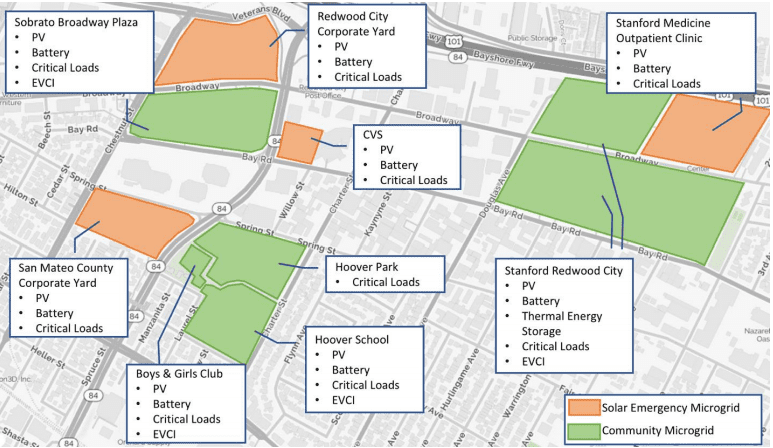Vote No on AB 942: Defend Rooftop Solar Affordability
Redwood Energy reports on Clean Coalition’s expert commentary, warning that AB 942 threatens rooftop solar affordability and undermines the clean‑energy transition
Read article

The Peninsula Advanced Energy Community (PAEC) Initiative studied projects that incorporate one or more components of an Advanced Energy Community (AEC) and found dozens of projects worthy of emulation because they overcome economic or policy barriers. Many of the best practices fall under one of these economic tools:
Best policy practices studied include:
Through dozens of PAEC studies, the team uncovered key findings about where to focus attention when developing AECs. The highlights fall into three areas: economic, policy, and technical.
Read the PAEC Master Case Study for the full findings, and see the Master Case Study Overview for a quick view of the Initiative’s major findings.
For details on the Clean Coalition’s design for an AEC in a disadvantaged community, see the PAEC Master Community Design.
The latest in clean local energy
Learn about our innovative projects and initiatives on our blog, and see what others are reporting about our important work.
Redwood Energy reports on Clean Coalition’s expert commentary, warning that AB 942 threatens rooftop solar affordability and undermines the clean‑energy transition
Read articleThis Clean Coalition hosted webinar took place on 27 June 2025 at 10:00 AM PST.
Read MoreThis blog post highlights the RGL Community Microgrid, which will provide clean energy and resilience to a disadvantaged community (DAC), utilize master metering, and serve as a critical model for future multi-unit housing (MUH) projects and master metering policies.
Read More